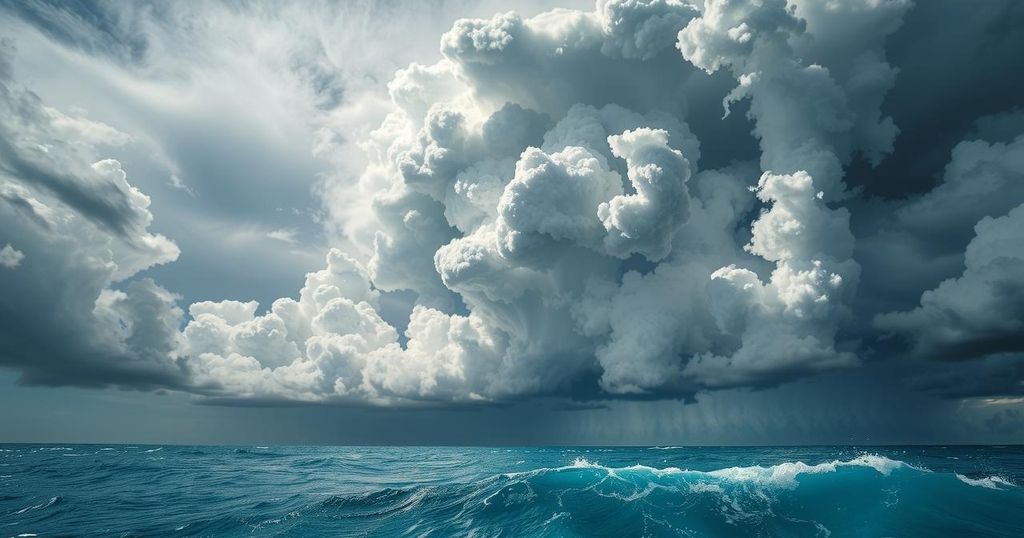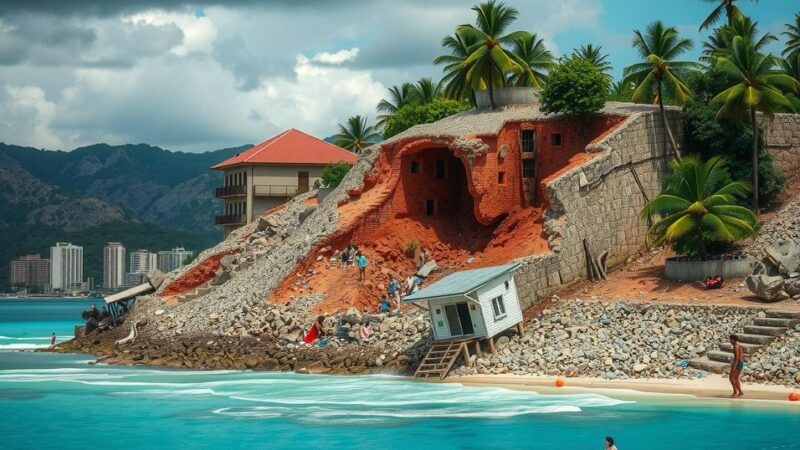Tropical Cyclone Chido is anticipated to hit Pemba, Mozambique, on December 15, 2024, with estimated winds of 120 km/h and rainfall up to 200mm in 24 hours. The cyclone threatens approximately 1.7 million people, particularly in Cabo Delgado, where a cholera outbreak may worsen due to the cyclone’s impact. The government is monitoring river levels to preempt urban flooding, especially in vulnerable areas of Pemba City.
Tropical Cyclone Chido is projected to make landfall in Pemba, Mozambique, during the early hours of Sunday, December 15, 2024. With the classification of an Intense Tropical Cyclone, Chido is anticipated to impact numerous provinces, particularly Cabo Delgado and Nampula. Additionally, areas such as Niassa, Tete, and, to a lesser extent, Zambezia will also be affected. Heavy rainfall, exceeding 200mm within 24 hours, and formidable winds, reaching up to 120 km/h, are expected from December 15 to 17. Historical comparisons reveal that Cyclone Chido possesses similar intensity to Cyclones Gombe (2022) and Freddy (2023).
The WFP’s Disaster Analysis and Mapping (ADAM) system identifies that approximately 1.7 million individuals are at risk from Cyclone Chido, with nearly a million residing in Cabo Delgado likely to experience winds surpassing 120 km/h. A meeting convened by the Government-led Technical Council for Disaster Management on December 12, 2024, indicated that although river basins in areas prone to flooding are currently below alert levels, they are likely to approach those thresholds due to Cyclone Chido. Urban flooding specifically threatens Pemba City, particularly neighborhoods including Bairro Cariaco, Alto Chuiba, Eduardo Mondlane, Natite, Ingonane, and Paquetequete.
Moreover, there are escalating concerns regarding the potential exacerbation of the cholera outbreak in Nampula, which has reported 283 cases and 21 fatalities as of December 11, 2024, amidst the cyclone’s impending impact. \n(Office for the Coordination of Humanitarian Affairs (OCHA), December 13, 2024)
Tropical cyclones pose significant threats to countries in Southeast Africa, especially Mozambique, which is prone to severe weather events due to its coastal location. Cyclones like Chido can lead to detrimental effects including flooding, destruction of infrastructure, and increased risks of disease outbreaks. The government’s proactive measures through disaster management councils and the monitoring of river basins are critical in mitigating these risks. Moreover, the intersection of weather events and public health crises, such as cholera outbreaks, presents an urgent need for effective response strategies to protect vulnerable populations.
In summary, Tropical Cyclone Chido is forecasted to strike Pemba, Mozambique, on December 15, 2024, with intense winds and heavy rainfall expected to impact over 1.7 million individuals across several provinces. The cyclone’s potential to intensify an already concerning cholera outbreak in Nampula necessitates urgent attention and effective preparatory actions. Continuous monitoring and disaster management efforts are essential to mitigate the adverse effects and protect vulnerable communities.
Original Source: reliefweb.int







